How Did Romans Celebrate Birthdays? Rituals, Parties, and Presents Explained reveals a fascinating glimpse into Roman birthday celebrations. Birthdays in Roman culture held significant importance, marking not just the passage of time but also social status and divine favor.
Romans observed birthdays through a mix of religious rites and social festivities.
Celebrations involved honoring household gods, public ceremonies for deities and emperors, and private gatherings with family and friends.
These events blended sacred rituals with communal enjoyment, underscoring the deep cultural value placed on personal milestones.
Understanding how Romans celebrated birthdays offers insight into their society’s values—where religion and daily life intertwined to create meaningful experiences that reinforced bonds within families and communities.
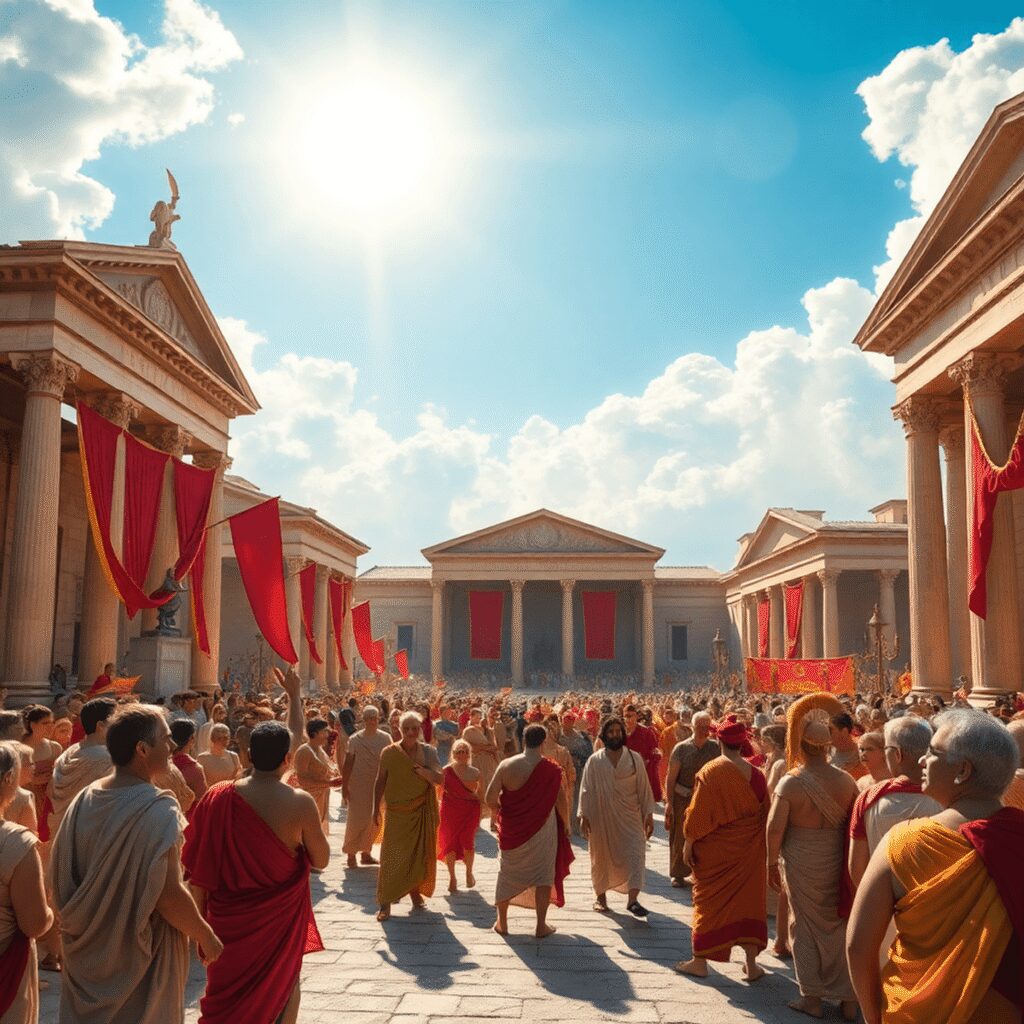
Public Celebrations of Birthdays
In ancient Rome, public birthday celebrations held great religious significance. These events honored not only individuals but also gods, temples, and even the city itself. The Romans observed several important annual birthdays, known as Dies Natalis, which highlighted the connection between civic pride and spiritual observance.
Key public birthdays included:
- Dies Natalis Solis Invicti — Celebrated on December 25, this festival honored the “Unconquered Sun,” a powerful deity associated with light and renewal. It became a prominent event in the Roman calendar, featuring rituals at temples and public feasts.
- Dies Natalis Urbis Romae — April 21 marked the legendary founding date of Rome. Festivities included games, sacrifices, and public gatherings that reinforced Roman identity and loyalty to the city.
- Natales Imperii — Birthdays of emperors were celebrated annually with great pomp. These occasions combined political propaganda and religious rites, reaffirming the emperor’s divine favor and authority.
Customs surrounding these public birthdays often involved:
- Offerings and sacrifices at temples dedicated to gods or emperors.
- Public games and theatrical performances sponsored by magistrates.
- Civic ceremonies that united citizens in shared celebration.
The public nature of these birthdays reflected Rome’s emphasis on collective identity through religious devotion. Such celebrations reinforced social hierarchies while allowing citizens to participate in rituals that connected them with divine protection and imperial power.
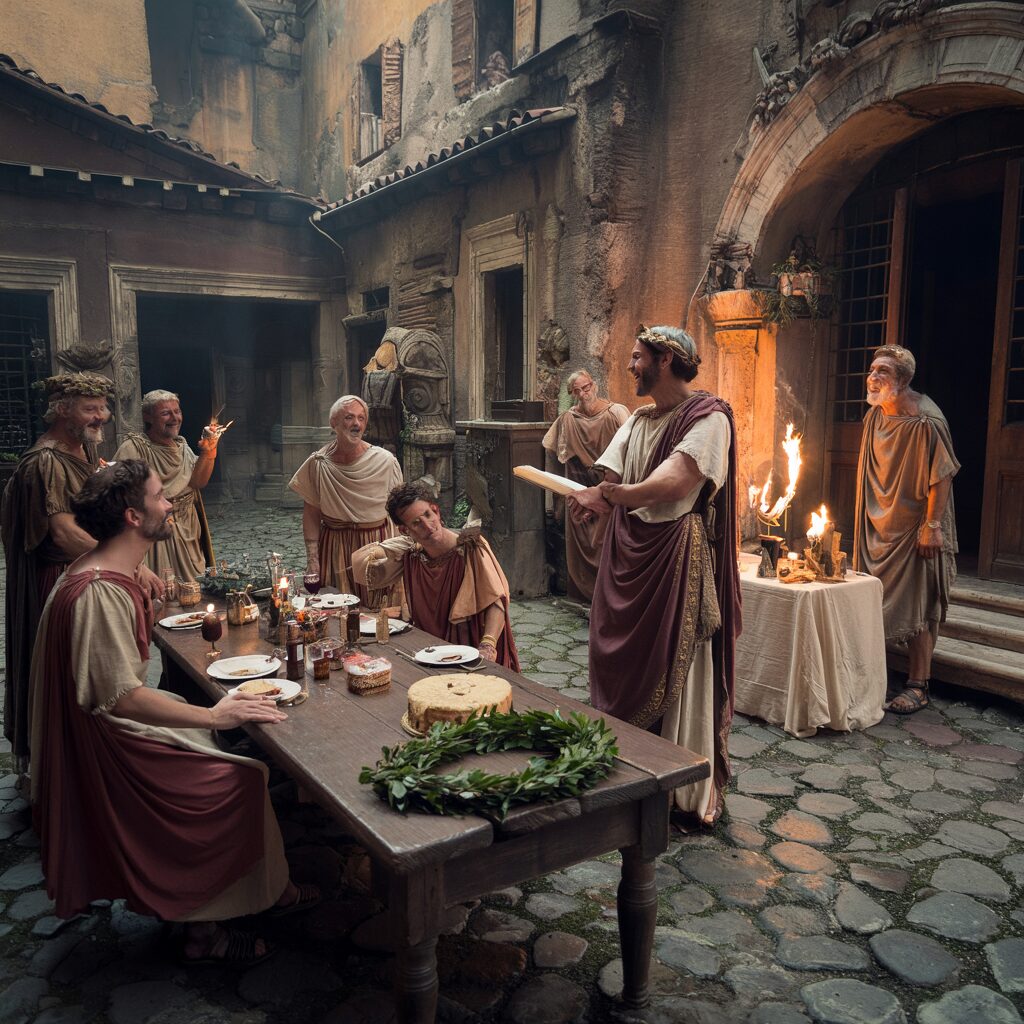
Private Birthday Celebrations
In private Roman birthday celebrations, religion and social customs were closely intertwined, shaping the essence of these joyous occasions. Here’s a deeper look into how Romans marked birthdays in intimate settings:
1. Connection between private Roman birthday celebrations and religion
Birthdays were not merely secular events but held spiritual significance. Romans believed in the presence of household gods (genii) who safeguarded the family and its members. During birthday rituals, offerings were made to these protective deities to seek their blessings for the celebrant.
2. Involvement of household gods (genii) in birthday rituals
The genii played a central role in ensuring the well-being of the individual celebrating their birthday. Offerings such as incense, wine, or food were dedicated to these household spirits as a token of gratitude and reverence.
3. Food and drink at Roman birthday parties
Festive banquets were a common feature of Roman birthday gatherings. Elaborate meals with delicacies, cakes, and wines were shared among guests to commemorate the occasion joyously. These feasts symbolized abundance and hospitality, reflecting the celebratory spirit of the event.
4. Exchange of gifts among family, friends, patrons
Gift-giving was an integral part of Roman birthday celebrations, fostering bonds of kinship and camaraderie. Family members, friends, and patrons exchanged presents as tokens of affection and goodwill. These gifts ranged from handmade crafts to items reflective of the giver’s skills or resources.
Through these intimate gatherings infused with religious devotion, sumptuous feasts, and heartfelt exchanges, private Roman birthday celebrations exemplified the blend of spiritual beliefs with social traditions in honoring individuals on their special day.
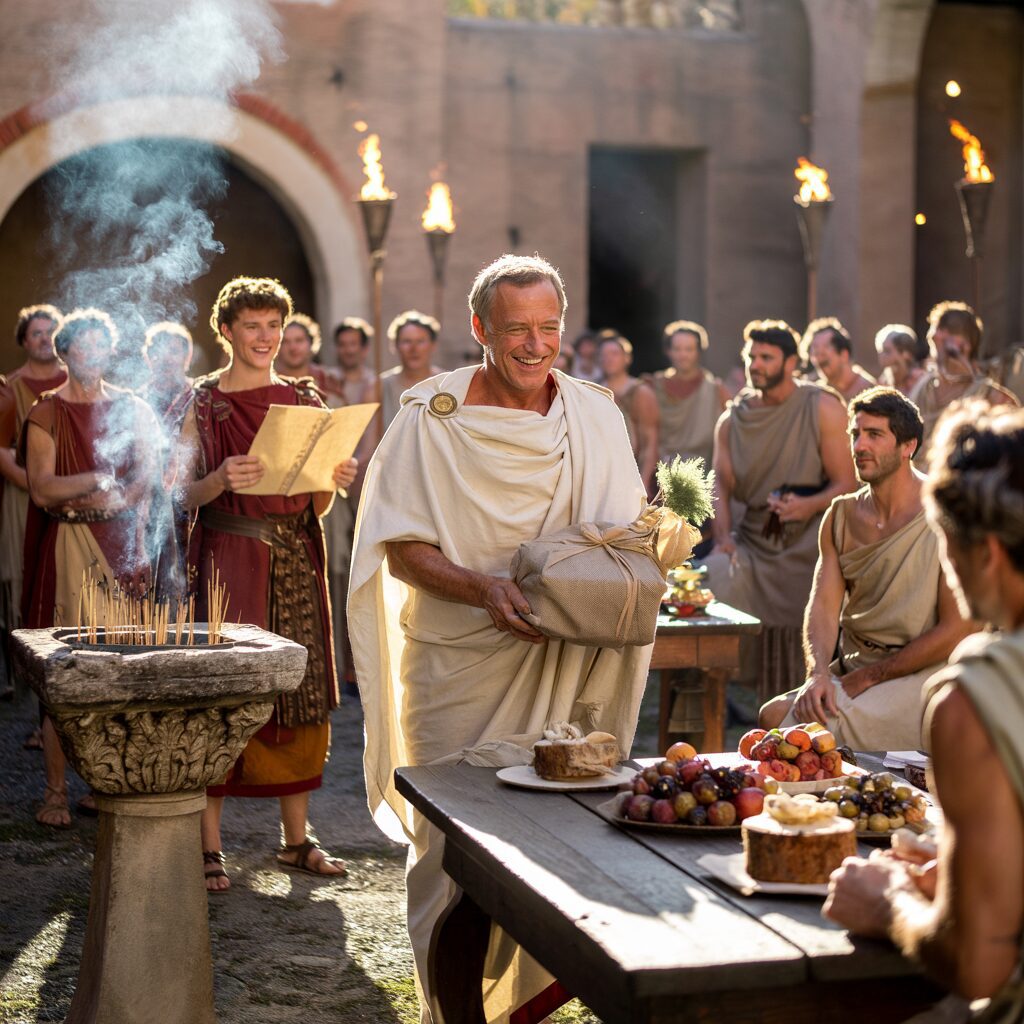
Gift-Giving in Roman Birthdays
In Roman society, gift-giving played a significant role in birthday celebrations, reflecting values of generosity, respect, and social cohesion. This practice is not just limited to birthdays or even to the Romans; it extends across cultures and occasions, such as the Christmas season, where gift-giving holds its own unique significance. Here are key aspects of how Romans exchanged gifts on birthdays:
1. Importance of Gift-Giving
Gift-giving was a fundamental part of Roman birthdays, symbolizing appreciation, connection, and goodwill among individuals. It served as a way to strengthen relationships and demonstrate care for loved ones. This sentiment is echoed in many cultures, including indigenous communities where gifts carry deeper meanings.
2. Common Gifts Exchanged
Romans exchanged a variety of gifts during birthday celebrations, ranging from practical items to symbolic tokens of affection. Common presents included jewelry, clothing, personal accessories, artwork, perfumes, and household goods.
3. Emphasis on Handmade or Skillfully Crafted Presents
Romans valued the effort and thought put into gifts, often favoring handmade or skillfully crafted items. These bespoke presents showcased the giver’s creativity and dedication to the recipient, making the gesture more personal and meaningful.
4. Variation of Gifts Based on Social Status and Financial Means
The types of gifts exchanged varied depending on the social status and financial resources of the individuals involved. While affluent Romans could afford luxurious gifts like fine textiles or rare artifacts, those with more modest means might opt for practical yet thoughtful offerings.
However, it’s important to remember that excessive consumption can have negative consequences for our planet. As highlighted in recent studies, buying stuff drives climate change. Therefore, embracing a more mindful approach to gift-giving could be beneficial.
Gift-giving in Roman birthdays transcended mere material exchange; it embodied sentiments of care, admiration, and social connection. Through carefully selected presents tailored to reflect both the giver’s esteem and the recipient’s preferences, Romans celebrated birthdays as occasions of shared joy and camaraderie.
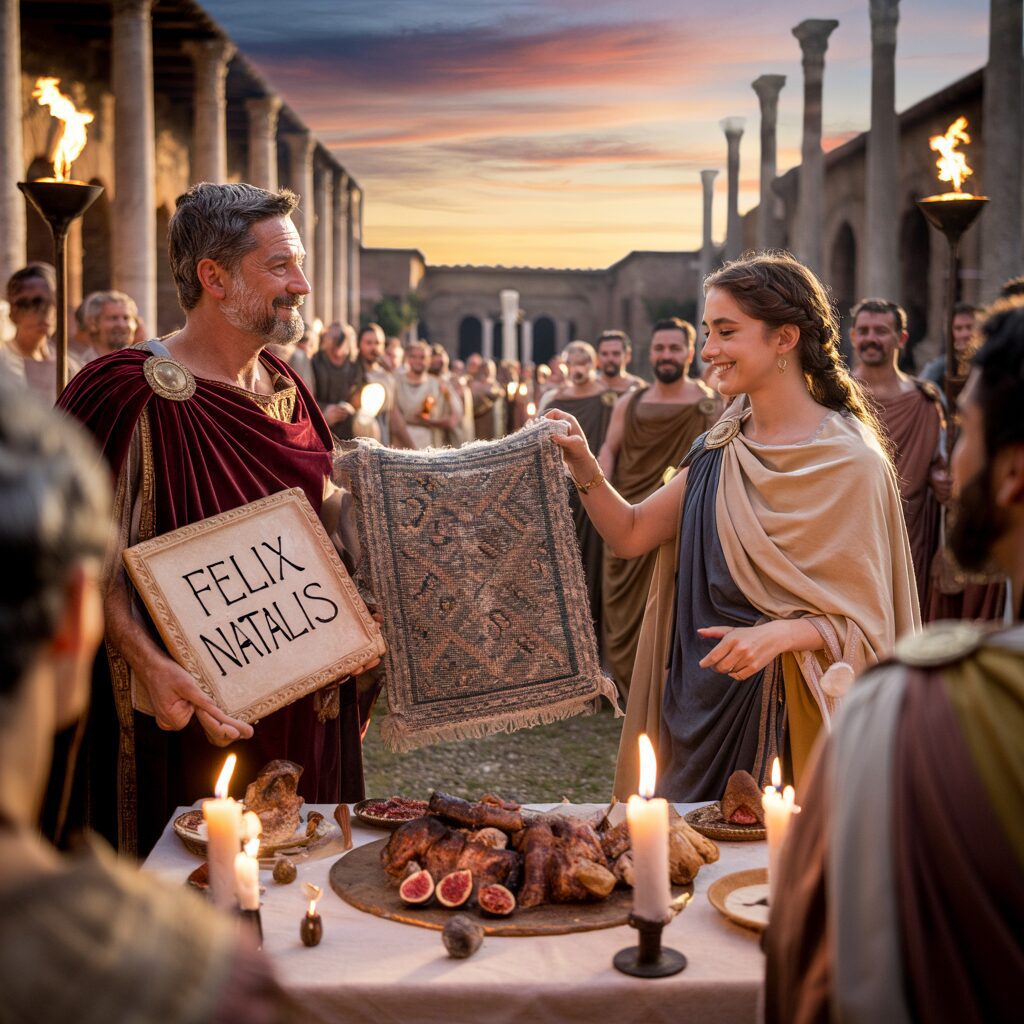
Cultural Significance of Birthdays in Rome
In Roman society, birthdays held a significant cultural importance, evident through literary works and historical artifacts that shed light on the celebrations and customs surrounding these special occasions. Here are some key points to consider:
1. Literary Evidence
Poets like Sextus Propertius and Martial composed poems that highlighted the cultural significance of birthdays in Rome. These poetic works captured the essence of celebration, reflecting the importance Romans placed on commemorating the day of one’s birth.
2. Composing Birthday Poems
Romans had a tradition of composing birthday poems as a way to honor and celebrate individuals on their special day. These personalized verses often conveyed well-wishes, praises, and blessings, adding a touch of artistry and sentiment to the occasion.
3. Historical Artifacts
The Vindolanda tablets provide valuable insights into Roman birthday celebrations, particularly among women. These artifacts include invitations to birthday gatherings, offering a glimpse into the social interactions and customs surrounding private birthday events.
The combination of literary works such as poems by renowned writers like Sextus Propertius and Martial, along with tangible artifacts like the Vindolanda tablets, underscores the deep-rooted cultural significance of birthdays in ancient Rome. Through creative expressions and material remains, we unravel the layers of tradition, artistry, and social dynamics that characterized Roman birthday festivities.
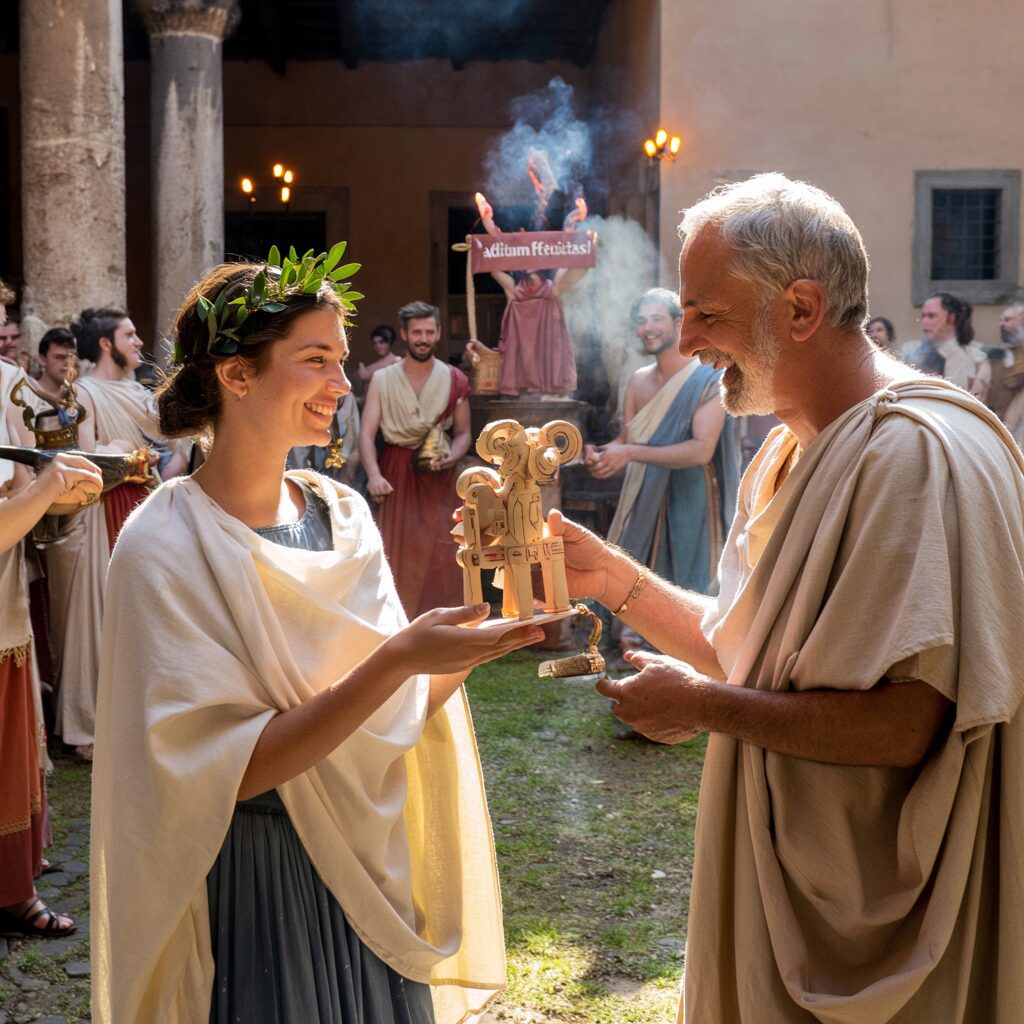
Conclusion
Romans celebrated birthdays as a mix of religious respect and social celebration, showing the importance of personal connections and community bonds. Through rituals honoring gods, meaningful poems, and the giving of carefully made gifts, Roman birthday customs aimed to strengthen relationships and create a feeling of belonging in society. These traditions not only recognized individual achievements but also provided chances to reinforce ties with family, friends, patrons, and the larger community. By combining spiritual beliefs with community celebrations, Romans saw birthdays as opportunities to nurture important connections and improve their social networks.
FAQs (Frequently Asked Questions)
How did Romans celebrate birthdays in ancient times?
Romans celebrated birthdays through a blend of religious rituals, social parties, and gift exchanges. They honored household gods with offerings, held banquets, and exchanged carefully crafted presents among family and friends to mark the occasion.
What was the significance of public birthday celebrations in Roman culture?
Public birthday celebrations in Rome held religious importance and included annual observances like Dies Natalis Solis Invicti (the Birthday of the Unconquered Sun), Dies Natalis Urbis Romae (the founding of Rome), and natales imperii (birthdays of emperors). These events reinforced community bonds and honored deities, temples, and rulers.
How were private Roman birthday celebrations connected to religion?
Private birthday celebrations involved offerings to household gods known as genii, reflecting the spiritual aspect of the occasion. Families hosted banquets and exchanged gifts, intertwining social festivities with religious reverence for protective spirits.
What types of gifts were commonly given during Roman birthdays?
Gift-giving was a vital part of Roman birthday customs, often featuring handmade or skillfully crafted items. The types of gifts varied based on social class and financial means, ranging from simple tokens to elaborate presents that emphasized personal relationships.
What literary evidence exists about the cultural importance of birthdays in ancient Rome?
Poems by Roman poets like Sextus Propertius and Martial highlight the cultural significance of birthdays. Additionally, historical artifacts such as the Vindolanda tablets reveal practices like composing birthday poems and issuing invitations to celebrations, especially among Roman women.
How did Roman birthday customs foster community bonds?
Roman birthday rituals, parties, and gift exchanges played a crucial role in strengthening personal relationships and community ties. By combining religious observances with social gatherings, these customs promoted unity within families and broader society.

